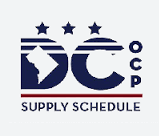Introduction
Running a small business is no easy task. And, if you intend to be successful making mistakes is not something you want to do on a regular basis because it can be very costly. Everything about your business reflects on you as a whole, whether it is an invoice, a telephone call, or a shipment delay. Here are the top 10 mistakes small business owners make with regards to Human Resources:
1. Hiring Out of Desperation
Plan ahead for hiring additional staff. When you plan ahead you will less likely hire the wrong person for the job. For example, when you need someone right away you might overlook certain things about a person such as their character. You hire them and suddenly your entire crew is in shambles and the work is not being completed because your new hire does not work well with others and has the opposite view of your core values.
2. No Job Description
Creating a job description for each employee you are looking for helps those who you hire perform their jobs as expected. But if you do not put it in writing, it becomes a difficult task for employees to do their jobs correctly.
3. Improvising the Hiring Process
The hiring process is there for a reason. Do not rush it. Why? When you hurry through things you are bound to forget something. More specifically, background checks, references, and multiple interviews. You might think the person you want to hire is the ideal candidate and because you are in a hurry, you miss tell-tale signs about the individual.
4. Outdated or No Employee Handbook
The Employee Handbook is where you should find company policies, the laws regulating your business, and codes of conduct, employee benefits, rights, etc. It should be updated on a regular basis.
5. Not Documenting Performance Issues
It is important to document performance issues as well as give an employee an opportunity to correct their performance. But if you fail to document performance issues it could lead to uncalled-for lawsuits and problematic terminations.
6. Not Designating Employees Correctly
Incorrect classification of an employee can land you in serious tax trouble. For example, you need to know the difference between an employee and an independent contractor because they fall in different tax brackets.
7. Not Investing in Training Personnel
To ensure your employees are trained properly you should have an onboarding process in place. Also, you can continue training via professional development programs as an ongoing process as long as they remain an employee at your company.
8. Ignoring Employee Rights
Employees have rights and when those rights are violated, there are laws in place to help protect them. Make sure your company complies with these laws to avoid penalties and hefty fines.
9. Insufficient Documentation
You need to make sure that all personnel in your company has an employee file with their contact details, where they live, a resume or CV, signed employee handbook, performance evaluations, etc.
10. Not Taking the Time to Understand Overtime
Calculating overtime may not be rocket science, but it can be confusing and requires knowing math. For example, you may have employee or salaried personnel that work 10.5 and 52.5 hours, respectively. In certain states it requires you to pay anyone who works 40 plus hours, time and a half payment. For this reason, as a small business owner it is important to educate yourself on how overtime laws work in your state, and strengthen your business with the support of an HR professional.

















